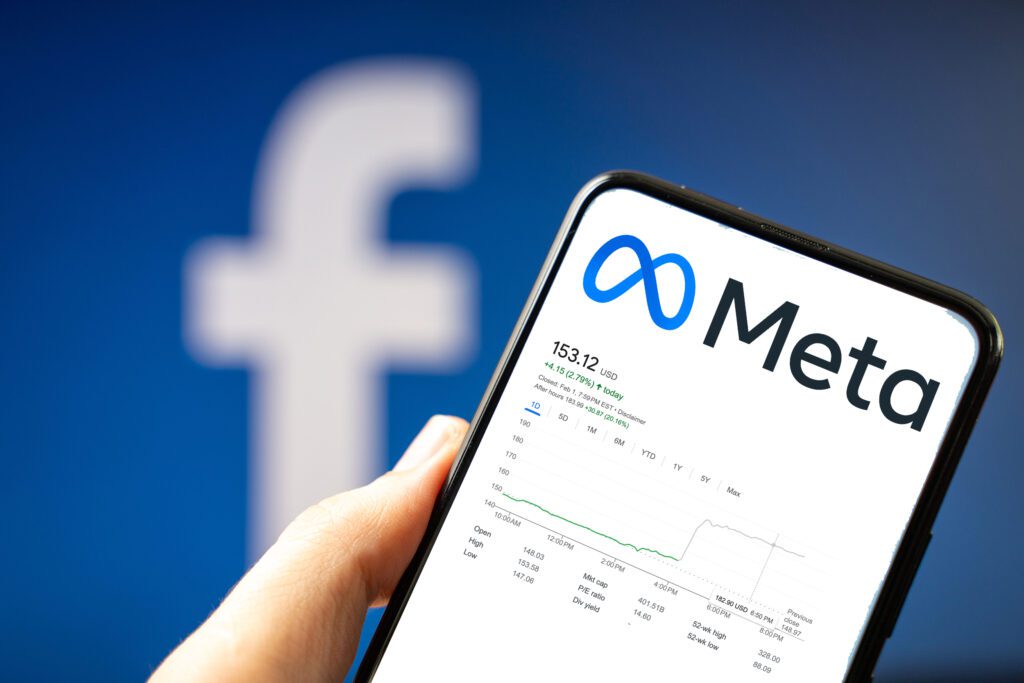2022 was a no good, very bad year for Meta’s stock. It was the year Meta reported its first-ever revenue decline.
But shares soared by more than 30% in after-hours trading on Wednesday, following Meta’s Q4 2022 earnings report, which beat the street’s revenue expectations.
Although that is not to say Meta grew its revenue, either overall or on a quarterly YoY basis.
Meta’s total revenue for 2022 was $116.6 billion, down 1% YoY. Revenue for the quarter was $32.2 billion, down 4% YoY. (Ad revenue for Q4 was $31.3 billion, also down 4% from the year-ago quarter.)
Still, investors rewarded Meta for its stated management theme for 2023, which Mark Zuckerberg pledged will be a “year of efficiency.”
Year of the water rabbit efficiency
Although Zuckerberg alluded to the metaverse, Quest Pro and Reality Labs during the Q4 call, his main focus was on streamlining the company and boosting business performance.
In addition to laying off 11,000 employees late last year – roughly 13% of its workforce – Meta plans to flatten its org structure, cut “layers” of middle management, “be more proactive about cutting projects that aren’t performing or may no longer be as crucial” – and, perhaps most importantly, deploy AI tools to help its engineers be more productive, Zuckerberg said.
AI is also the driving force behind Meta’s ad performance tools, such as Advantage+, its investments in privacy-enhancing technologies and a discovery engine for content recommendation across Facebook and Instagram.
And then there’s Reels. Meta is laser-focused on improving monetization for its short-form video product, also known as its TikTok clone. More than 40% of Facebook and Instagram advertisers now use Reels across Meta’s apps, but Reels still monetizes at a lower rate than ads in feed.
“The more that Reels grows, even though it adds engagement to the system overall, it takes some time away from Feed, and we actually lose money,” Zuckerberg said.
But Meta is making moves to improve Reels monetization efficiency on Facebook, which the company says has doubled over the past six months. “In terms of the revenue headwind [from Reels],” Zuckerberg said, “we’re still on track to be roughly neutral by the end of this year, maybe early next year.”
After that, Zuckerberg said he’s confident Meta will be in a position to profitably grow its Reels format.
For now, though, the overall number of ad impressions delivered across Meta’s family of apps increased by 23% year-over year in Q4, while the average price-per-ad decreased by 22% year-over-year. That shift was partially a reflection of engagement growth with surfaces that are still ramping up from a money-making perspective, like Reels.
Still blowing
But sticking with the topic of revenue headwinds, Meta is still dealing with the effects of Apple’s AppTrackingTransparency framework.
“There is still certainly an absolute headwind to our revenue numbers,” said Susan Li, Meta’s newly appointed CFO.
However, Meta is “lapping” the aftershocks of ATT’s rollout and adoption, she said.
“We are continuing to make progress and mitigating the impact from the ATT change,” Li said. “But, you know, this is more generally the reality of the online advertising environment that we operate in.”
You can say that again. Signal loss or, as Li referred to it at one point, the “signals landscape,” is an undeniable fact of life and of doing business (or trying to).
And beyond platform changes, regulators in Europe are also starting to take action.
In early January, European regulators ruled that Meta’s practice of using its terms of service to require people to consent to tracking for targeted advertising is illegal under GDPR.
This decision could mean Meta has to change its approach and rely on consent as its legal basis for targeted advertising.
Meta is, of course, appealing the ruling.
“We believe that our current approach is GDPR compliant,” Li said, “and … we don’t expect that those decisions are going to affect our ability to provide personalized advertising in the EU.”




















